As Volkswagen celebrates its 75th year in the US, its Chattanooga plant exemplifies a flexible manufacturing model that integrates electrification, workforce innovation, and supply chain resilience. With Chris glover as EVP, the plant has become a benchmark for industry transformation.
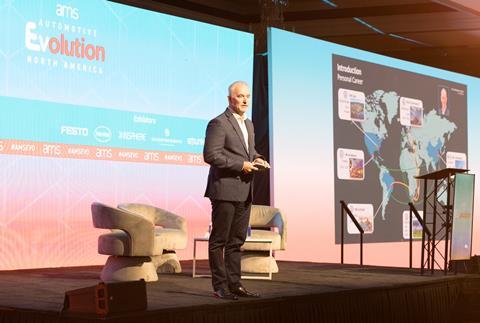
With an increasingly unpredictable automotive production landscape, adaptation is key. With this imperative in mind, one of the main keynotes at this year’s Automotive Evolution North America event centred on driving a flexible manufacturing highway at Volkswagen, with the OEM’s Chattanooga plant serving as the prime example of how such flexible production should be done.
With 42-year VW-veteran Chris Glover presenting, the insights were both time-honoured and valuable. Glover, who is EVP of VW Group of America’s Chattanooga Operations, was perfect for the presentation. His impressive career journey has taken him to Germany, Brazil, and China—where he spent seven and a half years during a pivotal period of growth—then to Mexico, before taking the helm at Chattanooga, Tennessee. “Each assignment has deepened my understanding of the complexities of global automotive manufacturing, and prepared me to lead in a rapidly changing environment,” he said. This is no understatement.
“By embedding flexibility into our processes, infrastructure, and workforce, Volkswagen Chattanooga is positioned to navigate the complexities of today’s market while preparing for the opportunities of tomorrow”
- Chris Glover, Execustive Vice President, America, Chattanooga Operations, Volkswagen
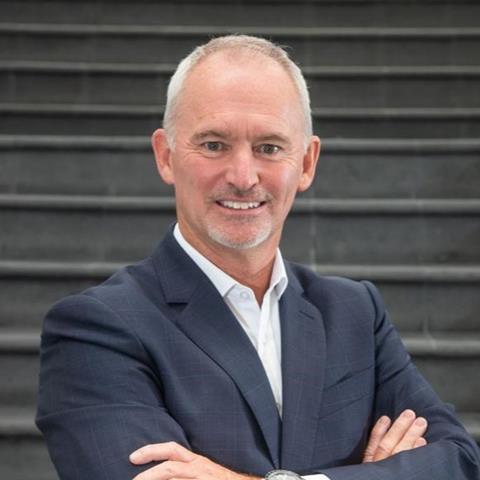
Automotive production is facing unprecedented challenges: decarbonisation, digitalisation, shifting customer preferences, new competitors, and economic uncertainty. Yet Volkswagen is, in many ways, rising to the occasion, leveraging its diverse portfolio and innovative technologies to adapt to these dynamics.
And automotive manufacturing - and VW Chatatanooga - is honest with its mission. “At breakfast this morning,” said Glover; opening, “AMS Editor, Nick Holt, described the automotive industry as resembling a swan: calm and composed on the surface but paddling furiously beneath the water to stay afloat. It’s a brilliant analogy,” he said. “Especially when considering the disruptions we face daily—geopolitical tensions, natural disasters, evolving regulations, supply chain challenges, and labour shortages. These issues, which I encountered upon arriving in the US, have only intensified over the past three years.
“Despite the challenges, I believe this industry thrives on transformation. While it can feel overwhelming, it also presents opportunities to innovate, adapt, and grow.” The Tennessee plant stands as a leading example of manufacturing transformation in North America, reshaping operations and upskilling staff to produce electric vehicles, software-integrated systems, and in a swiftly electrifying automotive environment; batteries.
Volkswagen celebrates its Diamond Anniversary
In the United States, Volkswagen celebrates its 75th anniversary this year. This journey began in 1949 with the arrival of the first Beetle and continues today with Chattanooga playing a pivotal role.
Established in 2009, the Chattanooga plant represents a $4.2 billion investment and a commitment to producing vehicles in and for the US market. Over the past 15 years, the plant has produced 1.5 million vehicles, starting with the Passat and now including the Atlas, Atlas Cross Sport, and the all-electric ID.4.
VW’s Flexibility is the key to navigating industry transformation
Getting to the nucleus of his presentation at Automotive Evolution North America, Glover highlighted that the transition to electrification represents the most significant shift in automotive history. While adoption rates vary globally, electrification is here to stay, requiring manufacturers to adopt revolutionary approaches to vehicle design, manufacturing, and supply chains.
Today’s vehicles are essentially engineering masterpieces, integrating mechanical, electrical, and software systems. They are increasingly connected, reflecting evolving customer expectations for features like autonomous driving, advanced safety, and sustainability. The complexity of modern vehicles has also intensified the need for supply chain resilience, as manufacturers contend with semiconductor shortages, geopolitical disruptions, and other challenges.
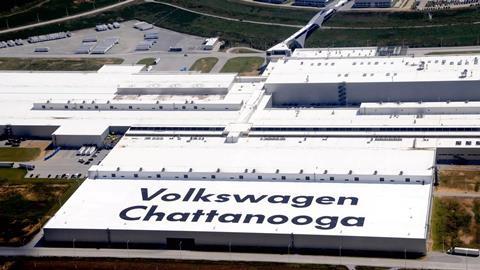
From a manufacturing perspective, the ability to shift to market forces such as unpredictable consumer demand, economic downturns or regulatory and political uncertainties, is the acid-test of success.
“At Chattanooga,” said Glover, “flexibility is the foundation of our manufacturing strategy. From infrastructure to workforce development, we have engineered adaptability into every aspect of our operations. This includes scalable factory layouts, advanced automation systems, and an integrated assembly process that allows us to seamlessly produce both combustion-engine and electric vehicles.”
The importance of building a VW workforce for the future
The waters are choppy and changing, and like the ship of Theseus the production vessel is ever-shifting; and as ever - large crews of people are required to ensure it is able to navigate. On such perilous journeys, there can be no success without people. Acknowledging this, Glover highlighted that a flexible manufacturing system is only as strong as the workforce that supports it. “Over the past two years, we’ve hired 3,500 new employees and implemented robust training programs. These programs include basic skills training, industry-specific professional training, and on-the-job learning.”
The VW approach to people and production
Producing around 9.3 million vehicles annually, Volkswagen is firmly established as the world’s second-largest automotive manufacturer, with 682,000 employees globally.
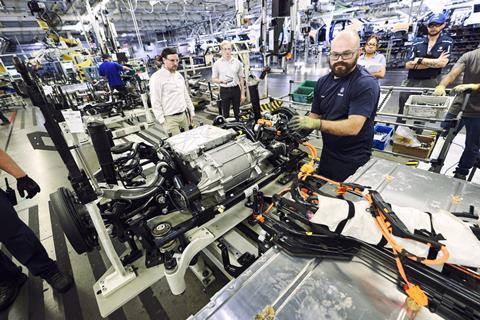
Volkswagen Chattanooga emphasises job rotation, he pointed out, enabling employees to adapt to varying production requirements and continuously develop their skills. “Communication is another critical component. Regular updates ensure that all team members understand market developments, production schedules, and the broader challenges we face as an industry.”
With the automotive industry undergoing such an unprecedented transformation, Glover, Volkswagen, (and the automotive industry at large) recognise that flexibility is no longer optional; it is an automotive manufacturing essential. Glover said, “by embedding flexibility into our processes, infrastructure, and workforce, Volkswagen Chattanooga is positioned to navigate the complexities of today’s market while preparing for the opportunities of tomorrow.”
Following an impressive career spanning decades - Chris Glover announces retirement
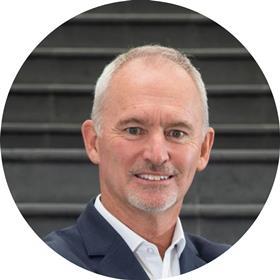
After such great leadership and service to Volkswagen over an impressive career spanning 42 years, Volkswagen recently announced that Chris Glover will officially be retiring, as of January 2025.
After playing a central role across the globe, Glover’s leadership at Volkswagen’s Chattanooga plant has been instrumental in its transformation and success.
Over his three-year tenure, here, he oversaw the integration of electric vehicle production, notably the ID.4 SUV, alongside traditional models like the Atlas and Atlas Cross Sport.
Chris Glover’s strategic vision and commitment to flexibility have positioned the Chattanooga plant as a benchmark for manufacturing innovation. As he retires in January 2025 after more than four decades with Volkswagen, we extend our heartfelt gratitude for his dedication, and wish him a fulfilling retirement.





























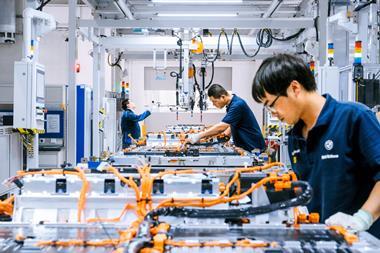
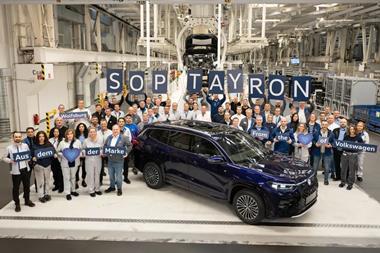
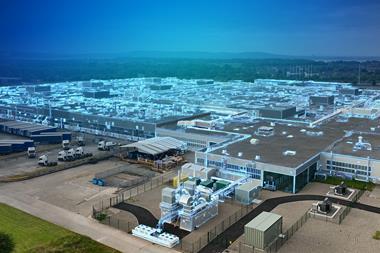
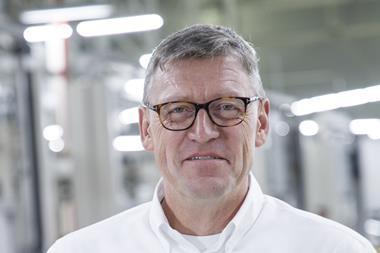

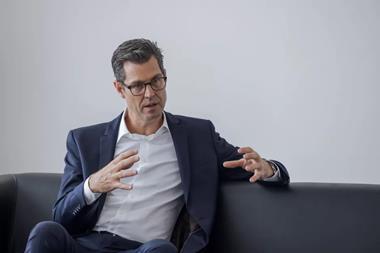



No comments yet